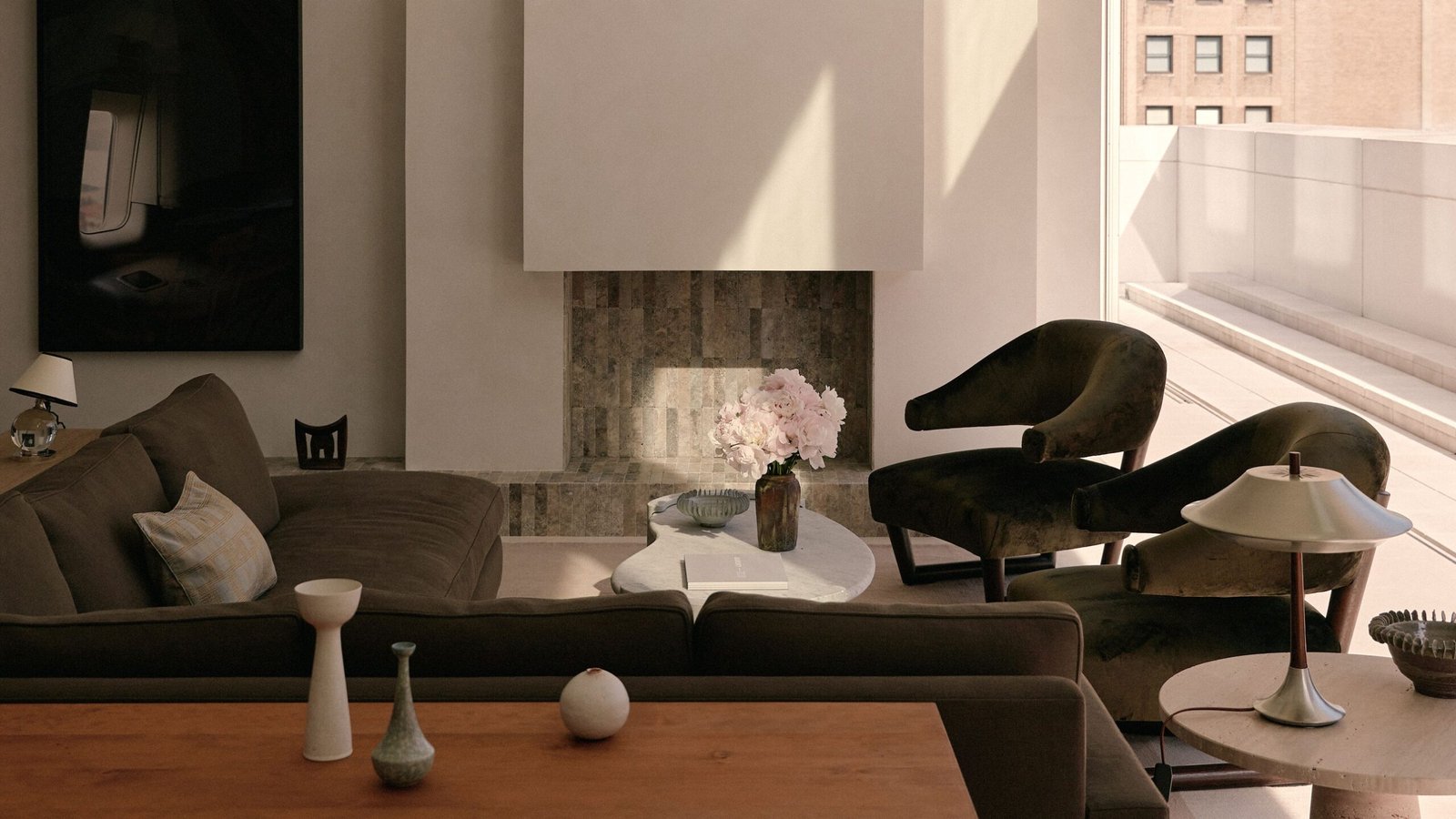“I have the shortest flight ever,” Pierre Frey says of his daily routine. “It’s a few seconds, and that’s nice.” Indeed, door-to-door, that journey takes him from his sixth-floor apartment to his third-f
loor office—all in the same 17th-century building where his grandfather started. Textile company of the same name In 1935. Younger Fry and his wife, film director and lighting designer Emily Cherpetelrecently remodeled their living quarters on the upper floors, infusing them with the same unique style that defines the textile company.
Aside from a five-year stint working in New York City, Frey, the company’s director of communications, has lived in the apartment since he was 21. He does a lot of dinners,” he recalls, those early days entertaining on top of the company building. “There was no problem, and that was really cool.” In 2011, after returning to France from the United States and shortly after meeting Sherpetel, he performed the first renovation master of the house, combining an adjoining unit and an attic to create a full-floor duplex residence.Last summer, with their sons George (10) and Marin (five), slightly older and sophisticated, the couple decided once again that it was time to make changes.
“We wanted more color, we wanted more carefree furniture,” Frey notes of the latest design brief, which he hoped would be “completely different” and include an eye-catching mix of vintage elements with new pieces from his firm, as well as from Sherpetel’s own lighting work, Canelopo. The family spends almost every weekend in their classic 19th-century French house in the Normandy countryside – a quiet, leafy retreat. This is partly why Frey wanted to celebrate the privileged atmosphere of their apartment in the 1st arrondissement, located between the Palais Garnier and the Louvre. “We wanted something more urban than home in the country,” says Frey. “It’s really in the heart of Paris.”
This urban mandate translates into a color palette of bold pinks, greens, and yellows in graphic patterns; slick, almost anthropomorphic furniture silhouettes; and powerful lamps from the likes of Studio Appliances in the kitchen and above the dining table. Minimal structural work was done this time, though Frey and Sherpetel were careful to adjust the flow of some rooms, close off the attic space to create a bedroom for one of their sons, and create a wardrobe from a previous hallway. They even added a working fireplace. The house’s exposed rafters, all original to the building (which once housed the apprentices of famous Louis XIV composer Jean-Baptiste Lully, a next-door neighbour), was an important decorative feature, so some architectural vaulting in the roof was part of the six-month project.
In the end, living above the store, as it were, feels like a custom-made setup for Frey and his family. As with the company on the floors below, the dwelling continues to evolve, growing alongside its occupants and reflecting their changing tastes and routines – but always with a nod to the past. “It’s old and modern at the same time, and I think it’s the hardest way to do an apartment,” says Frey, referring to the master bedroom’s headboard, which was designed last year but adapted from a 19th-century piece. “I wanted these feelings to work together.”
